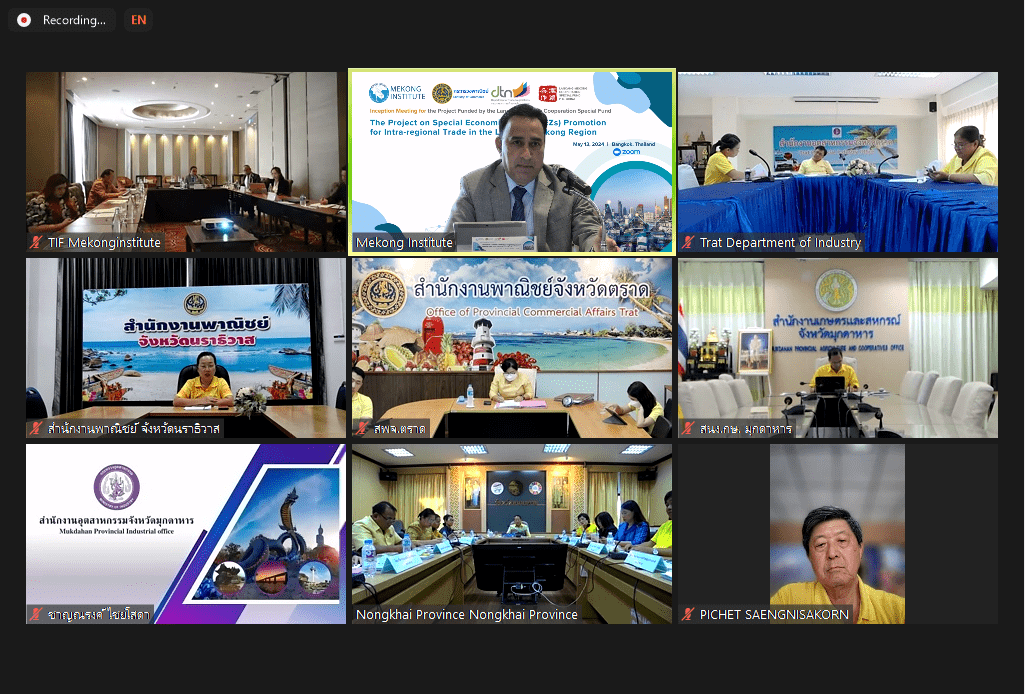Bangkok, May 13, 2024 – With support from Lancang-Mekong Cooperation Special Fund of the China, Mekong Institute (MI), in cooperation with Thailand’s Ministry of Commerce (MOC) convened the Inception Meeting for the “Special Economic Zones (SEZ) Promotion for Intra-regional Trade in the Lancang-Mekong Region” project expectations, and laying the groundwork for the project’s success in promoting Thailand’s SEZ for intra-regional trade.
This hybrid event drew senior officials of the MOC of Thailand and stakeholders from Lancang-Mekong (LM) countries, including representatives from the Thailand Board of Investment, Thai Chamber of Commerce, Federation of Thai Industries, National Economic and Social Development Council, Eastern Economic Corridor Office of Thailand, Asian Development Bank, 10 border SEZ authorities in Thailand, and representatives from Cambodia, China, Lao PDR, Myanmar, and Vietnam.
In the opening remarks, Ms. Chotima Lemsawasdikul, Director General of Department of Trade Negotiations of the Thai MOC expressed appreciation to the China for promoting and funding intra-regional economic cooperation in the LM region. She is optimistic that the project will further expand and deepen cooperation among SEZ in line with the current global economic trend. Thai government gives utmost importance to the idea of SEZ development and connection among Mekong-Lancang countries, leveraging tax, trade, and investment privileges, streamlined custom procedure facilities” explained Ms. Chotima.
Mr. Madhurjya Kumar Dutta, Director of Trade and Investment Facilitation Department at MI, stresses the importance SEZ for economic transformation, technology and skills development, and policy formulation, justifying public investment. However, financial viability and streamlined administrative procedures are essential for their sustainability. He added that governments in the LM region are focusing in building SEZ to stimulate economic activity, particularly along economic corridors and border areas.
Mr. Dutta also highlighted that this project builds on the success of previous initiatives on cross-border SEZ development and improving infrastructure and regulations. These included creating joint one stop service centers, integrated quarantine services. and SEZ database to enhance business connections and information sharing.
The meeting provide a platform for representatives of government and public agencies and stakeholders from the Mekong-Lancang countries to exchange ideas and discussed the project strategy. Special focus was on industrial development, human resource development, promotion of trade in SEZ and connectivity between SEZ of Thailand and Mekong-Lancang countries to facilitate goods flow and investment. These factors are important to attract Foreign Direct Investments into SEZ.
The input and feedback from the meeting will be used to finalize the project activity design, identity capacity building needs for and priorities of stakeholders, and develop training curricula.








